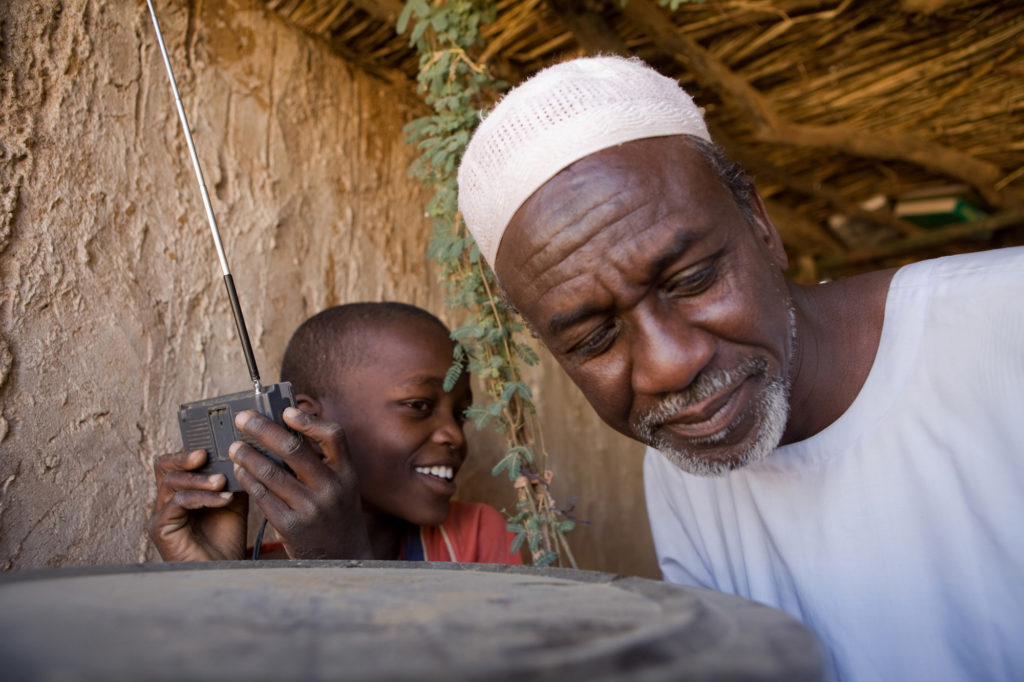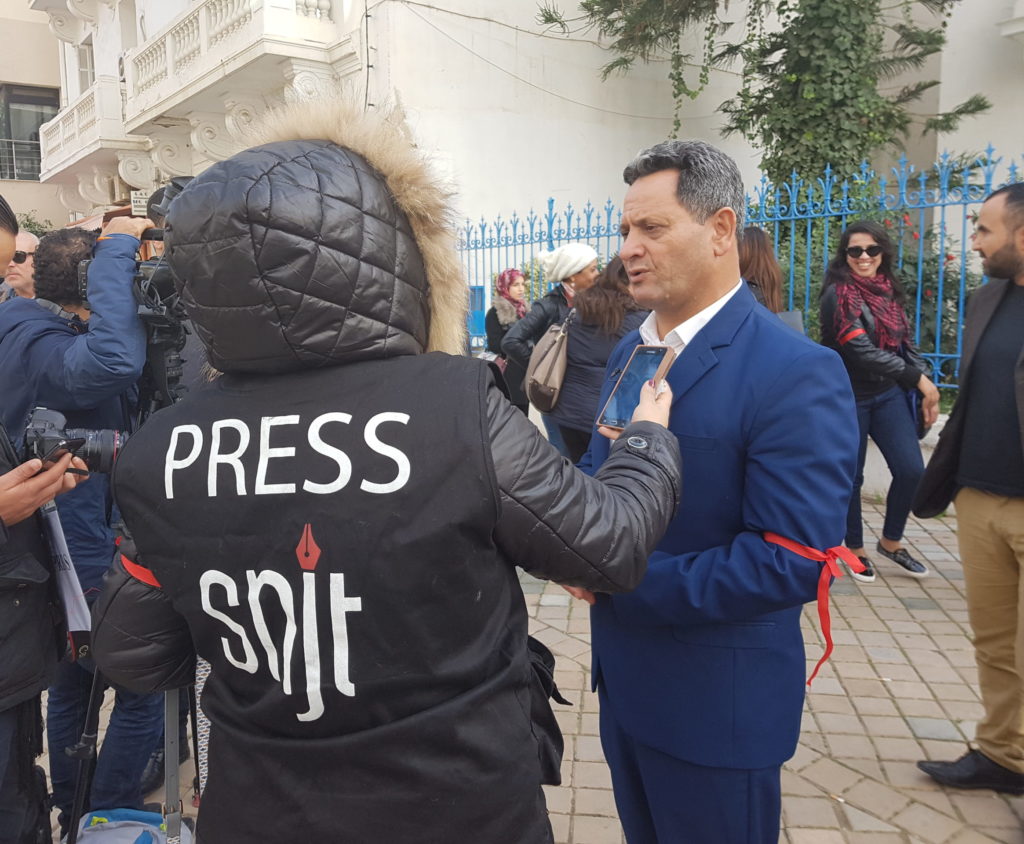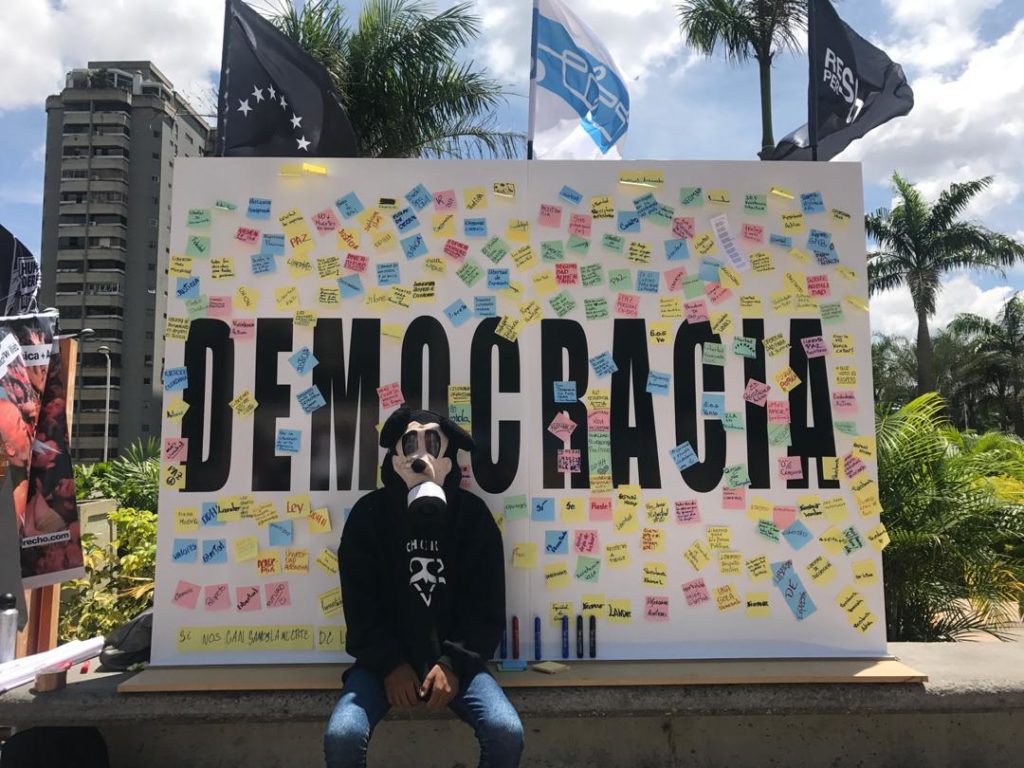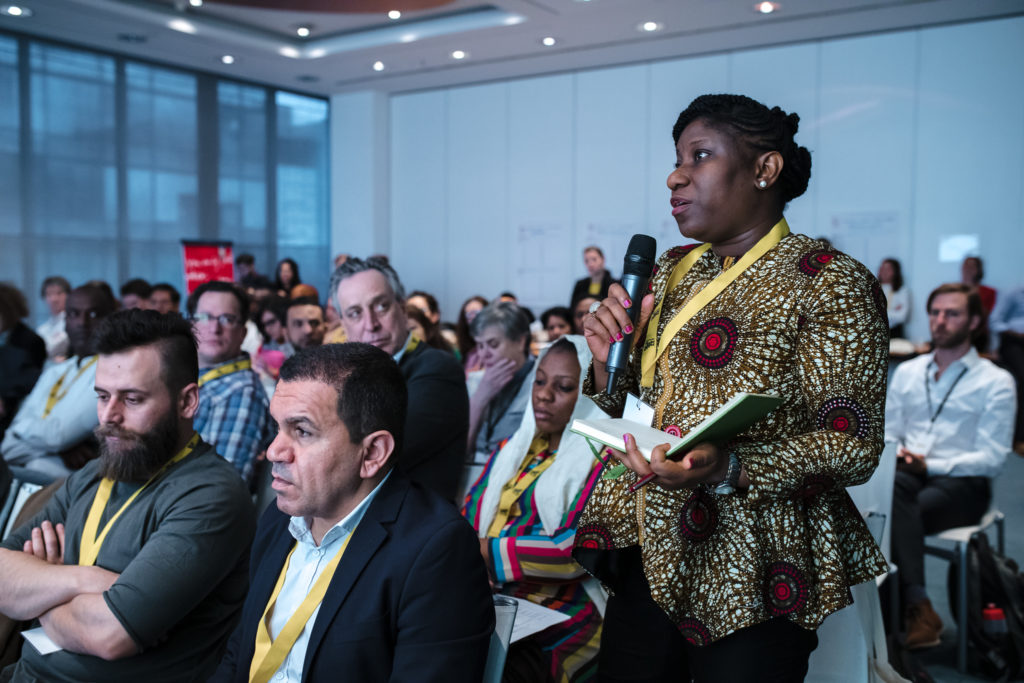Introduction
Media fostering accountability is about the purpose of good journalism: building a society in which the powerful are accountable to the rest, where information is shared transparently, where there is space for democratic initiative and where citizens can exchange opinions fairly. This is promoted through an independent and pluriform media landscape, with quality journalism adhering to ethical standards.
In many instances, especially when these conditions are not in place, media content can do the very opposite. It can serve to reinforce the power of vested interests, exacerbate existing inequalities and exclude marginalised or critical voices. This is a serious pitfall that actively needs to be avoided when working with media. On a more positive note, this pitfall can be avoided, by working to improve the independence of media outlets and the standards they apply to their content. This can be a way to foster accountability in society at large.
“Evidence is growing that an independent media remains one of society’s most effective assets available to curb corruption and to foster accountability”
J. Deane “The role of independent media in curbing corruption in fragile settings” BBC Media Action, Policy Briefing #16, 2016, p.3
This resource guide gives an overview of the many dimensions there are to the media fostering accountability. It presents the evidence and resources that we have curated, as well as examples from the track record of Free Press Unlimited‘s work in supporting media outlets across the world.
This page (also the first tab in the guide’s menu) offers an introduction to the entire guide. An overview of the various roles the media plays in society can be found below, including:
1. Provider of relevant & reliable information
2. Watchdog ensuring good governance
3. Platform for democratic discourse
4. Mirror of diversity in society
While the rest of this guide focuses more on ‘how‘ the media can foster accountability, this first page elaborates more on ‘why‘ the media should foster accountability.
The following three tabs delve further into several elements that are important for the media to pursue this mission – ranging from working with citizen journalists to conducting effective fact-checking
– Representation and Participation
– Investigations and Impact
– Truth and Trust
All of these elements are necessary for the media to have a beneficial effect on accountability, without inadvertently exacerbating inequalities or reinforcing vested interests.
The last tab contains an overview of support that can be requested from Free Press Unlimited directly: from training opportunities to grants for investigative journalism.
If you are a journalist or work for a media outlet, then this tab could be of particular interest to you.
The pages included in the sections Representation and Participation, Investigations and Impact, and Truth and Trust contain lessons and good practices on the various ways the media fosters accountability in society. Their focus is practical The section below, on this page, contains an overview of evidence for the different ways in which independent media plays a beneficial and necessary role in society.
Media in Society
Free Press Unlimited believes that the media plays a central role in a free and fair society. It should serve as a watchdog to the powerful, holding them to account on behalf of their audiences and society at large; this can be achieved by investigating the malpractices of power elites. The media is also instrumental in placing issues relevant to civil society on the public agenda, and providing the public with relevant information about the world around them, as well as a good understanding of their rights.
“By publicizing information that is reliable and salient for citizens, the media can change the incentives of elites by increasing the costs of certain behavior or policy decisions, reshape preferences and beliefs, and make the policy arena more contestable”
Khemani and others 2016, in World Development Report 2017 by WORLD BANK GROUP
When effectively holding the powerful to account, the existence of independent media contributes to reducing corruption and increasing domestic accountability. In developing countries, this is linked to a more effective usage of development funds.
We have therefore distinguished four key roles the media plays in society, based on a larger clustering by UNESCO IPDC. These four roles represent the different dimensions through which the media can foster accountability:

1. Provider of relevant & reliable information
Every citizen needs reliable, relevant and timely information to be able to make informed choices about their life. The media are the disseminators of stories, ideas and information that grant agency to citizens over their own lives. It has long been established that an independent media is a central tenet of democracy. This is because having a free media that provides reliable information serves as a corrective to the ‘natural asymmetry of information’ between governors and the governed and between competing private agents.[1]
The World Bank Group’s Spotlight 12 summarises the role of the media in “reaching broad audiences and reshaping the demands of what they expect from both their government and their media” as “essential for ensuring the sustainability of progress in promoting more contestable and participatory spaces of policy dialogue” (p.253).
In this capacity, the media (as providers of information) are indispensable to establishing and maintaining a level playing field in society. For more on this, see among other publications World Bank, The Right to Tell.

2. Watchdog ensuring good governance
Independent media serve as the watchdogs of powerholders in all forms. This includes governments, but also corporate actors or others with a large influence on society. They can do so in both an adversarial (exposing wrongdoings) and constructive (agenda-setting) manner, depending on the context and situation.
Media should promote transparency in public life and public scrutiny of those with power through exposing corruption, maladministration and corporate wrongdoing. When done correctly, this leads to a culture of accountability, that is associated with improved development outcomes, increased adherence to human rights and the promotion of good governance
The way the media pushes for good governance results in two important and interdependent societal improvements:
- Reduced corruption, arising in part from incentives to reduce harmful behaviour. See Public Sentinel: News Media & Governance Reform: Chapters 5 & 6 examine the role of media as a watchdog. “No doubt, press exposure of corruption has the potential to catalyze governance reforms” (p.130)
- Improved service provision for citizens, as a result of improved government responsiveness to higher media engagement. See this evidence gathered from India showing a robust, positive correlation between community media access/coverage and government responsiveness.
However, this means that on the flip side, when independent media struggle to survive, corruption increases and service provision deteriorates. A recent study found that the closure of local newspapers in the United States is associated with higher government wages and deficits, leading to higher borrowing costs for local authorities. Moreover, the implications of a decline in local coverage increases the likelihood of corruption and community neglect (e.g. less effective schools). These findings therefore support the idea that local newspapers hold their governments accountable, keeping municipal borrowing costs low and ultimately saving local taxpayers money.
Of course, more than free and independent media is necessary to hold powerholders to account and ensure good governance – independence of the judiciary or free and fair elections, for instance – but while ‘voice needs teeth to have bite – teeth may not bite without voice’. For more on this, see Social Accountability: What Does the Evidence Really Say?
Read more: The role of independent media in curbing corruption in fragile settings
This policy briefing for decision-makers stresses the urgent need for international support for independent media in fragile states. When independent media isn’t prioritised, the cost of corruption to development goals is significant.

3. Platform for democratic discourse
Independent media is an essential facilitator of the democratic process and one of the guarantors of free and fair elections. It forms an integral part of the so-called ‘civic space’ within which democratic debate is possible. Furthermore, independent media can form a platform on which various alternative ideas can be developed.
Liberal democracy relies on a dispersion of power across actors and institutions, and independent media are an important part of this counterpower. In contexts where the quality of a democracy is threatened, independent media are often among the first to be targeted. But they can also play a key role in resisting this development and keeping alive the ‘democratic imagination’.
This function of independent media as a counterpower becomes especially salient in post-conflict situations. “Deference and dissent strike a delicate balance in any polity” and too much deference has been identified in situations where powerholders were able to incite and orchestrate mass violence. This radio experiment was devised to explore the counterpower the media could exert in post-genocide Rwanda. The analysis shows how independent media can promote independent thought and foster public debate, in turn discouraging ‘blind obedience’, a dangerous mindset frequently associated with acts of atrocity.
While the importance of independent media for democracy is intuitive, a 2014 study by the Institute of Social Studies also provides some empirical backing for this claim. They found a significant effect of the level of press freedom on measures of democracy in the (developing) countries included in their research.
Indeed, not only can democratic discourse be maintained on a media platform, the media itself can be seen as a democratising agent helping bring about institutional change in transitional societies. This research report by the Reuters Institute at the University of Oxford, for instance, provides a a theory of mass media during democratisation processes, based upon studies in Central and Eastern Europe, Latin America, and the Arab world.
Read more:
‘Democracy Undone: the Authoritarian Playbook’, by the GroundTruth Project, outlines the playbook from which various nationalist leaders all seem to be working.
It also offers practical advice to journalists wishing to cover rising authoritarianism.

4. Mirror of diversity in society
Media are a means by which a society learns about itself and builds a sense of community, and which shapes the understanding of values, customs and tradition. A media landscape that reflects the diversity present in society, contributes to the inclusion and equal participation of all groups of people in this process.
When the media holds others to account, journalists make choices in whose issues they investigate. If they underrepresent groups of people while doing so, they end up reinforcing the power of vested interests and exacerbating existing inequalities.
As this article found in India, improved media representation of certain communities results in improved service provision from the government to these groups. Naturally, the opposite is also true. When communities aren’t represented, the media fails to reflect the diversity of society, which establishes bias in and for represented regions or groups (often disadvantaging women, ethnic minorities or peripheral areas).
In particularly diverse places, this bias can create further societal division and fragmentation. On the topic of ‘media access bias’, an article by David Strömberg demonstrates that poor voters in developing countries are hugely affected by a lack of coverage: “Newspaper provision of news may… produce a political bias disfavoring remote and rural areas”. Nonetheless, as Strömberg’s article highlights, “radio and television may reduce this pro-urban bias” (p.187)
Footnotes
[1] Islam, Roumeen “Into the Looking Glass: What the Media Tell and Why -An Overview” in The Right to Tell: The Role of Mass Media in Economic Development (Washington DC: World Bank Institute, 2002), p. 1.
Evidence base: Media fostering accountability
| Source | Year | Country | Organisation | Author |
|---|---|---|---|---|
| For Investigative Journalists in Indonesia ‘the Threats are Real’ | 2019 | Indonesia | Free Press Unlimited | Free Press Unlimited |
| Leave No Trace: The Right to Information and the Duty to Document | 2018 | Austria, Finland, Germany, Ireland, Italy, Poland, Slovenia, Spain, Sweden, United Kingdom | Access Info Europe, Think tank for Action on Social Change | Access Info Europe, Think tank for Action on Social Change |
| Media Pluralism, Public Trust, and Democracy: New Evidence from Latin America and the Caribbean | 2018 | Caribbean, Latin America | Center for International Media Assistance (CIMA) | Rodríguez, M. and Zechmeister, E. |
| Appropriating technology for accountability: messages from Making All Voices Count | 2018 | Global | Institute of Development Studies (IDS) | McGee, R. et al. |
| Checking facts and fighting back: Why journalists should defend their profession | 2018 | United States of America | Pingree, R.J. et al. | |
| The Constructive Role of Journalism. Contentious metadiscourse on constructive journalism and solutions journalism | 2018 | Global | Stanford University | Aitamurto, J. and Varma, A. |
| The Impact of Digital Platforms on News and Journalistic Content | 2018 | Australia | Centre for Media Transition, University of Technology, Sydney | Wilding, D., Fray, P., Molitorisz, S. & McKewon |
| Final Evaluation Speak Up Zambia | 2018 | Zambia | Free Press Unlimited | Concha de la, J. |
| Media behaviour of young people in Ukraine, Belarus and Moldova: Belarusian Analytical Workroom | 2018 | Belarus, Moldova, Ukraine | Free Press Unlimited | Vardomatski, A. |
| Global Teamwork: The Rise Of Collaboration In Investigative Journalism | 2018 | Global | Reuters Institute for the Study of Journalism | Sambrook, R. |
| Internal Evaluation Indonesia Country Programme | 2018 | Indonesia | Free Press Unlimited | Free Press Unlimited |
| Internal Evaluation Iraq Country Programme | 2018 | Iraq | Free Press Unlimited | Schoot Uiterkamp, T. |
